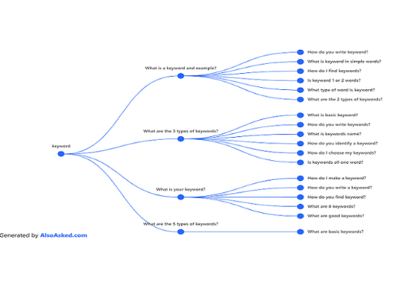When it comes to SEO, having the right tools can make all the difference. Over the past 11 years, I’ve used many tools to analyze, optimize, and track performance for websites across various industries. These tools not only streamline workflows but also uncover valuable insights that help in creating effective strategies.
In this article, I’ll share my favorite SEO tools, why I use them, and how they can benefit your business. Whether you want to master keyword research, improve technical SEO, or optimize content, these tools are tried and tested to deliver results.
Keyword Research Tools I Rely On
Tool 1: Ahrefs
Ahrefs is my go-to tool for comprehensive keyword research. Its powerful site explorer reveals what competitors are ranking for and helps me identify untapped opportunities. The Keywords Explorer is beneficial for finding the search volume, difficulty, and click potential of keywords.
- How I use it: To identify ranking opportunities, track backlinks, and monitor competitor strategies.
- Example: Ahrefs helped me uncover long-tail keywords for a client, driving a 30% increase in organic traffic within three months.
Tool 2: SEMrush
SEMrush offers an all-in-one suite of tools for keyword research, PPC analysis, and content optimization. I particularly appreciate the Content Gap feature, which shows keyword opportunities competitors are targeting but my site isn’t.
- How I use it: To develop keyword strategies, analyze market trends, and track SERP rankings.
- Example: Using SEMrush’s Topic Research tool, I created a content plan that boosted engagement by 40%.
How These Tools Help:
Keyword research tools like Ahrefs and SEMrush are indispensable for building a strong SEO foundation. They empower me to:
- Find high-value keywords with manageable competition: By identifying keywords that balance search volume and ranking difficulty, I can target terms that drive meaningful traffic and deliver results.
- Monitor shifts in keyword trends and adjust strategies: Staying ahead of evolving search behaviors ensures my strategies remain effective and adaptable to market changes.
- Analyze competitors and discover gaps to exploit: These tools provide detailed insights into competitor strategies, allowing me to uncover untapped opportunities and create content that fills those gaps.
- Understand search intent and align content accordingly: By analyzing search patterns, I ensure that every piece of content addresses what users are looking for, increasing its relevance and engagement.
- Track performance and refine campaigns: Continuous monitoring of keyword rankings and traffic helps me refine campaigns for long-term growth.
These capabilities make keyword research tools an essential part of any successful digital marketing strategy.
Technical SEO Tools
Tool 3: Screaming Frog
Screaming Frog is an essential tool for conducting in-depth technical audits. It crawls websites to uncover errors like broken links, duplicate content, and redirect chains. This tool is invaluable for maintaining a technically sound website.
- How I use it: To conduct regular site audits, ensuring my clients’ sites remain error-free and optimized.
- Example: I used Screaming Frog to resolve 404 errors on an e-commerce site, improving user experience and boosting search rankings.
Read more in Screaming Frog’s guides.
Tool 4: Google Search Console
A staple for any SEO professional, Google Search Console provides insights into how a website performs on Google. It highlights indexing issues, tracks search performance, and offers data on search queries driving traffic.
- How I use it: To monitor indexing status, submit sitemaps, and identify underperforming pages.
- Example: By analyzing search queries, I optimized meta titles and descriptions for key pages, leading to a 20% increase in CTR.
Learn more at Google Search Central.
Key Benefits
These tools ensure a site’s technical foundation is strong, allowing:
- Faster crawling and indexing.
- Identification and resolution of site errors.
- Improved user experience, leading to better rankings.
Content Optimization Tools
Tool 5: Surfer SEO
Surfer SEO is a game-changer for content creation when it comes to SEO tools. It provides actionable recommendations for keyword density, structure, and readability, ensuring content is perfectly optimized for rankings.
- How I use it: To create data-driven blog posts and landing pages that align with search intent.
- Example: Using Surfer SEO, I optimized a blog post that ranked #5 to the #2 spot within two weeks.
Read more about Surfer SEO in the academy.
Tool 6: Grammarly
Grammarly is a simple yet indispensable tool for polishing content. Beyond checking grammar and spelling, it offers tone suggestions to make the writing more engaging and professional.
- How I use it: To refine articles, ensuring they are error-free and easy to read.
- Example: Grammarly helped me improve the clarity of a complex technical article, increasing time on page by 15%.
Learn how to use Grammarly in their blog.
How These Tools Add Value
- Ensure content is optimized for both search engines and readers.
- Save time by streamlining the editing and optimization process.
- Improve content quality, resulting in better engagement and rankings.
Analytics and Reporting Tools
Tool 7: Google Analytics
Google Analytics provides deep insights into user behavior, traffic sources, and website performance. It’s a vital tool for making data-driven decisions.
- How I use it: To monitor traffic patterns, identify top-performing pages, and measure campaign ROI.
- Example: By analyzing bounce rates, I optimized underperforming landing pages, reducing bounce rates by 25%.
Learn how to use Google Analytics in their help-section.
Tool 8: Google Looker Studio (Google Data Studio)
Google Data Studio allows me to create visually appealing and interactive dashboards. It simplifies reporting by pulling data from multiple sources.
- How I use it: To present complex data in a clear and actionable format for clients.
- Example: I used Data Studio to create a dashboard that highlighted key metrics for a quarterly SEO review, saving hours of manual reporting.
Read more about Google Looker Studio.
Why These Tools Matter
- Provide actionable insights to refine strategies.
- Offer clear reporting to showcase results to stakeholders.
- Simplify data visualization for better decision-making.
Final Thoughts on the best SEO tools for you to use in 2025
Over the years, these SEO tools have become indispensable in my digital marketing toolkit. From uncovering keyword opportunities to ensuring technical health and crafting optimized content, they’ve helped me deliver consistent results for clients.
While these are my favorites, the best tools for you will depend on your specific needs and goals. The key is to focus on tools that save time, provide actionable insights, and align with your overall strategy.
Let’s connect to discuss how these SEO tools and my experience can help your business grow!




